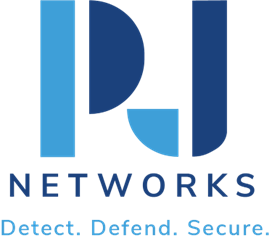The Role of Blockchain in Enhancing Cybersecurity
In today’s digital era, cybersecurity concerns have reached an all-time high, with data breaches becoming increasingly sophisticated and prevalent. As businesses look for advanced solutions to protect their sensitive data, blockchain technology has emerged as a promising candidate for enhancing cybersecurity. This transformative technology not only serves the foundation of cryptocurrencies like Bitcoin but also offers potential applications in fortifying cybersecurity measures across various industries. In this blog post, we will explore how blockchain technology can be leveraged to improve cybersecurity.
Basics of Blockchain Technology
Before delving into how blockchain can be used for cybersecurity innovation, it is essential to understand what blockchain technology entails. At its core, blockchain is a distributed ledger that securely records transactions across multiple computers. Each block contains a list of transactions, and these blocks are linked together in chronological order. Because of its decentralized nature, no single entity has control over the entire blockchain, thus reducing the risk of fraud and manipulation.
Key characteristics of blockchain include:
- Decentralization: Unlike traditional databases managed by a central authority, blockchains distribute data across a network of nodes, making it more secure and less vulnerable to attacks.
- Immutability: Once data is recorded on the blockchain, it becomes nearly impossible to alter without consensus from the network, ensuring data integrity.
- Transparency: Transactions on a blockchain are visible to all participants, promoting accountability and trust.
Blockchain and Cybersecurity
Integrating blockchain into cybersecurity frameworks can revolutionize the way businesses protect their data. Blockchain’s distributed ledger technology can offer enhanced security features, reducing the risk of unauthorized access and data breaches.
Authentication and Identity Management
Traditional authentication systems, which rely on passwords and user credentials, are prone to breaches and unauthorized access. Blockchain provides a decentralized model for authentication, where unique digital identities are created and securely stored on the ledger. This eliminates single points of failure and enables more robust, multi-factor authentication systems.
Data Integrity and Protection
Blockchain can ensure data integrity by providing a tamper-proof record of transactions and data exchanges. In the case of a cybersecurity event or data breach, blockchain’s immutability can help in forensic investigations by offering an accurate, verifiable trail of all transactions.
Secure IoT Networks
With the increasing integration of the Internet of Things IoT in businesses, securing these interconnected devices becomes crucial. Blockchain can establish secure device-to-device communication, preventing unauthorized data access and enhancing the overall security of IoT networks.
Use Cases in Different Industries
Blockchain security applications span across various industries, each benefiting from its unique features:
Financial Services
The financial industry is highly susceptible to cyber threats due to sensitive financial data. Blockchain can enhance payment security, ensuring secure and transparent transactions, minimizing fraud, and preventing money laundering activities.
Healthcare
In healthcare, patient data privacy is of utmost importance. Blockchain’s distributed ledger can securely store patient records, ensuring only authorized personnel have access, thereby safeguarding patient confidentiality.
Supply Chain Management
Blockchain can improve the traceability and transparency of supply chains. By recording each transaction on a distributed ledger, businesses can easily track products, authenticate their origin, and prevent counterfeiting, which is crucial in industries like pharmaceuticals and luxury goods.
Government Services
Blockchain can streamline various public sector operations by enhancing the security of digital voting systems, property records, and identity management, making government services more transparent and efficient.
Benefits and Limitations
Blockchain technology presents numerous benefits for enhancing cybersecurity:
- Enhanced Security: Its decentralized and immutable nature makes it extremely difficult for cybercriminals to tamper with data.
- Greater Transparency: Provides a clear and traceable record of all transactions, fostering trust among users.
- Reduced Costs: By eliminating intermediaries and automating processes, businesses can cut down on cybersecurity expenditure.
However, blockchain is not without its limitations:
- Scalability: As the number of transactions grows, blockchain networks can face scalability issues, impacting performance.
- Complexity: Implementing blockchain solutions can be complex and may require significant changes to existing infrastructure.
- Regulatory Challenges: As a relatively new technology, blockchain faces evolving regulations, which could affect its adoption in certain sectors.
Future Prospects
The potential of blockchain in bolstering cybersecurity is vast, and its future looks promising. As technology evolves, it is expected to see more refined solutions catering to specific industry needs. Innovations such as smart contracts could further automate security protocols, reducing human intervention and errors. Moreover, as blockchain frameworks become more scalable and efficient, their adoption in cybersecurity strategies is likely to increase.
Conclusion
Blockchain technology offers a powerful tool in the arsenal of cybersecurity measures, redefining how businesses can protect their data in an increasingly digital world. While it presents some challenges, its potential benefits in enhancing security, transparency, and efficiency cannot be overlooked. As industries continue to grapple with complex cyber threats, integrating blockchain into cybersecurity strategies can pave the way for safer, more secure digital environments. As we forge ahead, embracing blockchain applications in sectors such as finance, healthcare, and supply chain can lead to groundbreaking innovations, transforming the future of cybersecurity.
